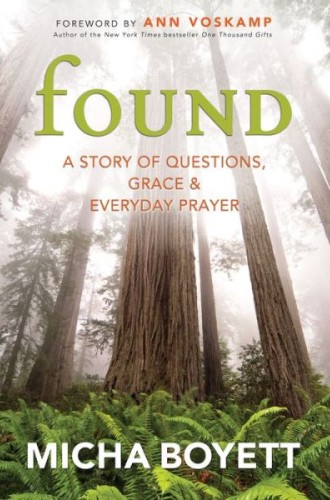God’s longing
The first time I read Micha Boyett’s Found, I didn’t know that I would be reviewing it. Which is to say I didn’t read the book with an eye for what potential readers might find in its pages, and I didn’t jot down critical notes in the margins. I read it for what I found in its pages. My marginalia were for myself, and my impressions were not yet bound to the obligations of a reviewer.
Perhaps, at least sometimes, it is acceptable to slip an uncritical reaction into a proper analysis of a book. This is mine: the morning after I stayed up too late finishing the last chapter, I called a local spiritual director to book my first appointment. For years I have resisted the whole enterprise, and this one imperfect yet powerful memoir nudged me to stop accepting the lukewarm state of my spiritual life. During my first session with Bridget I explained my mystifying impetus: I wanted to yearn for God as deeply as Micha Boyett does. For Micha Boyett longs for God with a disarming earnestness.
Neither Boyett nor her story fit into tidy categories. Found isn’t a parenting memoir, though Boyett’s experience as a new mother no longer engaged in full-time ministry is the context for her so-called prayerlessness. Nor is this the tale of an angry former Southern Baptist repudiating her spiritual heritage. Her ambivalence for revival-fueled legalism is clear, but Boyett writes tenderly and appreciatively of her childhood church even as she grafts herself into a more liturgical expression of the Christian faith.





